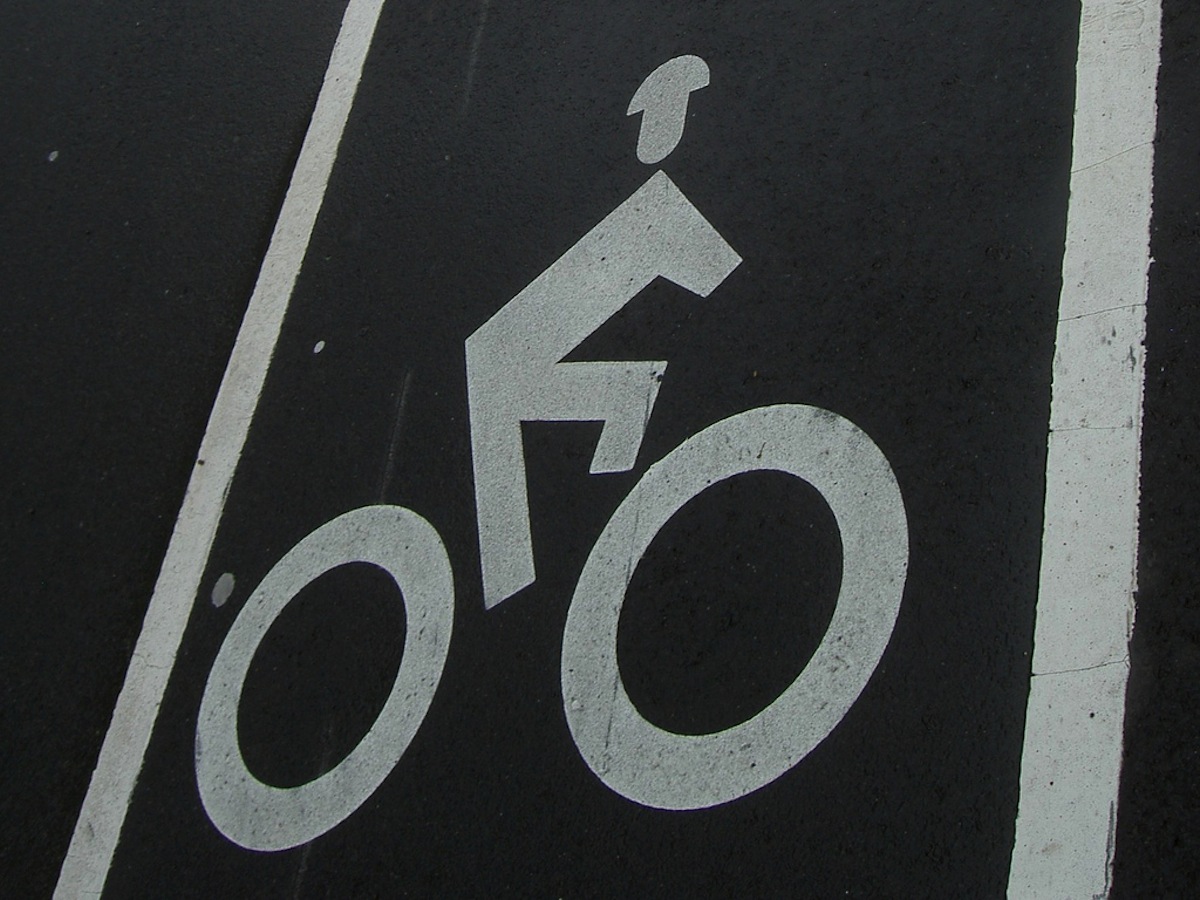Boston Picked for National Program to Help Speed Up Bike Lane Installations

Bike Lane photo Uploaded by Dan4th on Flickr
The country’s “leading bicycle movement” has selected Boston as one of just six cities in the country to get new bike lanes designed to help keep cyclists separated from vehicles on the roadways.
Nicole Freedman, director of the city’s Boston Bikes program, sent out an email Monday announcing that The PeopleForBikes Green Lane Project will work with officials to implement “its intensive two-year program to build protected bike lanes” on city streets.
Under the terms of the partnership program, Boston will get strategic, technical assistance from The Green Lane Project, an initiative run by the non-profit PeopleForBikes, to speed up the installation of protected bike lanes—also known as cycle tracks—already in the works. The lanes will keep cyclists and cars in two different sections of the roadways by using either raised curbs, planters, parked cars, or posts “to make riding a bike an appealing option for more people.”
Freedman said the projects vary. Some of the proposed tracks can be done by repainting roadways, while others are still in the design phase. The tracks are city-funded, but will most likely be paid for through grant money. The Green Lane Project helps push the projects forward in a timely manner. “We proposed a specific number of projects in our application all in various levels of design, from early concept to advanced design. Implementation is subject to the public process,” she said.
Boston was picked from a pool of 100 cities across the country and will join Atlanta, Denver, Indianapolis, Pittsburgh, and Seattle as the test cities for the program. The folks at PeopleForBikes said it was a tough decision sifting through the various cities that applied for the installation project, but because Boston has a reputation for getting certain things done in record time, it made the area an obvious choice for the grant.
“It was extremely difficult to narrow down our selection to just six cities; we are seeing an upsurge of interest in accommodating bikes on busy city streets,” said Martha Roskowski, PeopleForBikes’ vice president of local innovation. “Boston has ambitious goals and a strong vision supported by the elected officials and the community. They are poised to get projects on the ground quickly and will serve as an excellent example for other interested cities.”
Boston leaders will join the Green Lane Project at an official kickoff event in Indianapolis in late April, according to Freedman.
Pete Stidman, executive director of the Boston Cyclists Union, a group that helped push Boston’s application forward, said he was excited about the plans. “This has been electrifying for the bike activists we work with in the city. After years of chanting ‘cycletrack’ at as many city and state design meetings as we can, it’s clear that the city is really listening and active in creating these protected bike lanes that allow almost everyone to ride safely. Now all we need is more funding to get some of the more challenging projects done.”
The announcement comes just days after the city hosted a meeting to outline the design plans for a new network of bike paths that will loop around the historic monuments Boston has to offer, as part of the “Connect Historic Boston” project.
According to project details, a four-mile track will circle the downtown area after modifications to busy streets are made to better connect cyclists with regional paths and T stations. The bike trail will include a two-way, elevated bicycle track along Staniford, Causeway, and Commercial Streets, as well as Atlantic Avenue. It will also require the reconstruction of Lowell Square and Keany Square.
“Over the next six years, I want to take Boston from one of the best bicycling cities in the country to one of the best in the world. Investing in protected bike lanes is a critical path to that success,” Mayor Marty Walsh said in a statement Monday.
Since 2007, Boston has added 82 miles of bike lanes to city streets and 1,500 bike racks. The city also launched one of the first bike share systems in the country, Hubway, which has grown to 130 stations and more than 1,100 available bicycles.
“This is just what Boston needs to jumpstart the expansion of protected bike lanes here,” said David Watson, executive director of the Massachusetts Bicycle Coalition, or MassBike. “We sent a letter of support for the city’s application to the Green Lane Project, and we are looking forward to seeing more people of all ages and abilities biking safely in Boston.”


